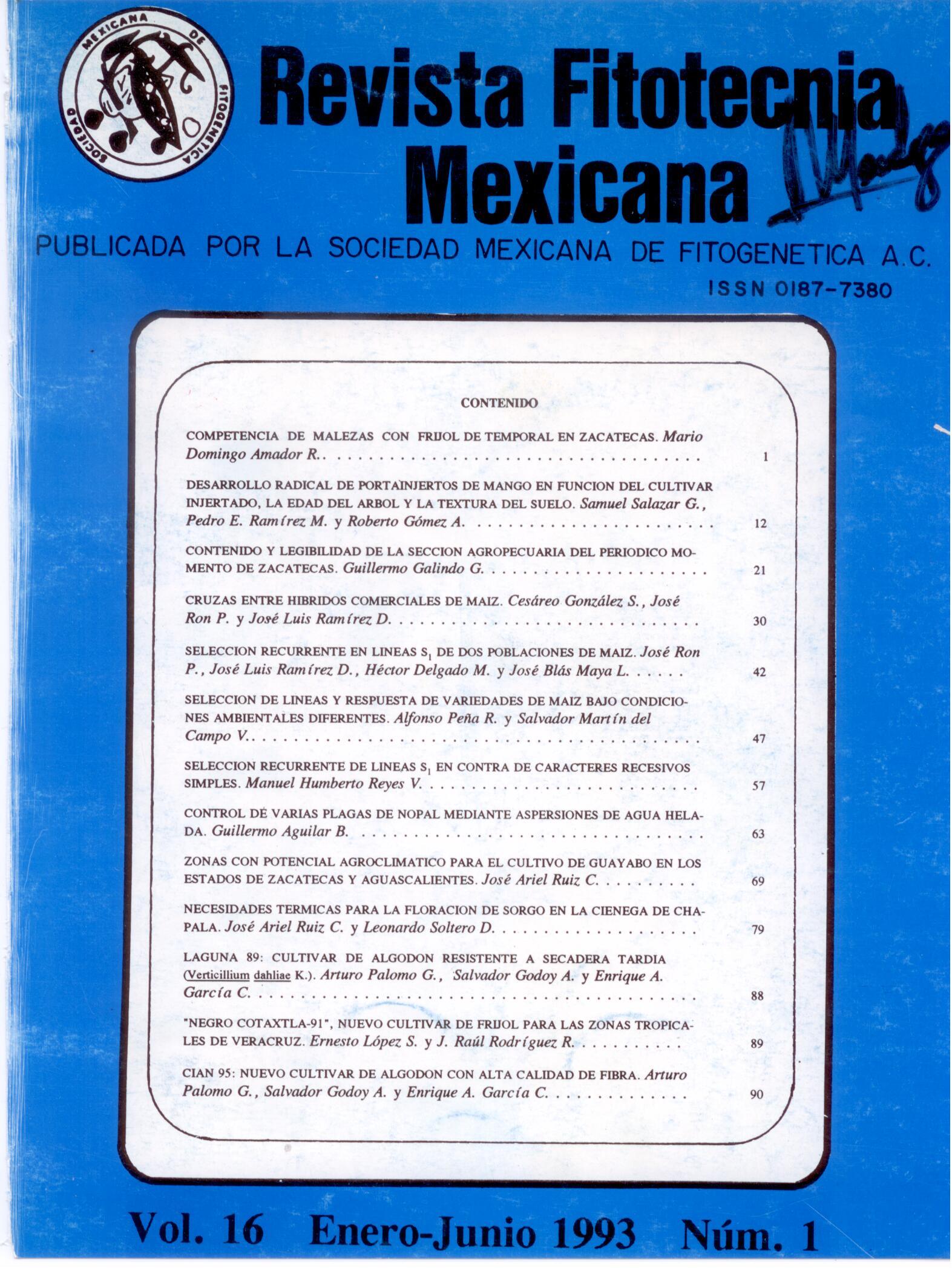CROSSINGS BETWEEN COMMERCIAL CORN HYBRIDS
Main Article Content
Abstract
Improved varieties of the most important cultivated crops have contributed to production increase in Mexico and other countries. Their use have not been generalized in developing countries, due to several reasons, among them, limited seed availability for
commercial planting. In México, important areas are planted with native varieties called "criollos", hybrid advanced generations, composites of "criollos" or even involuntary combinations among them. In such a case, maize genetic and environmental potentials
have not been properly used; which affects the total grain production in a given area or region. The use of seed coming from crosses between F1 commercial adapted hybrids was evaluated as an additional option for poor and enthusiastic farmers. Five F1, F2 and F3 hybrids and all their possible crosses in F1 and F2 were evaluated to compare their grain yield at four locations under rainfall conditions. The results were favorable for using seed obtained from crosses between F1 commercial hybrids in the Central part of Jalisco, either F1 or F2, because: (1) The crosses in F1 and F2 formed with F1 commercial hybrids showed similar grain yield as their own hybrid progenitors and they overyielded F2 and and F3 hybrid advanced generations, and (2) there was heterosis for grain yield, mainly in F1, in crosses between the F1 commercial hybrids from different seed companies, apparently due to genetic divergence.

